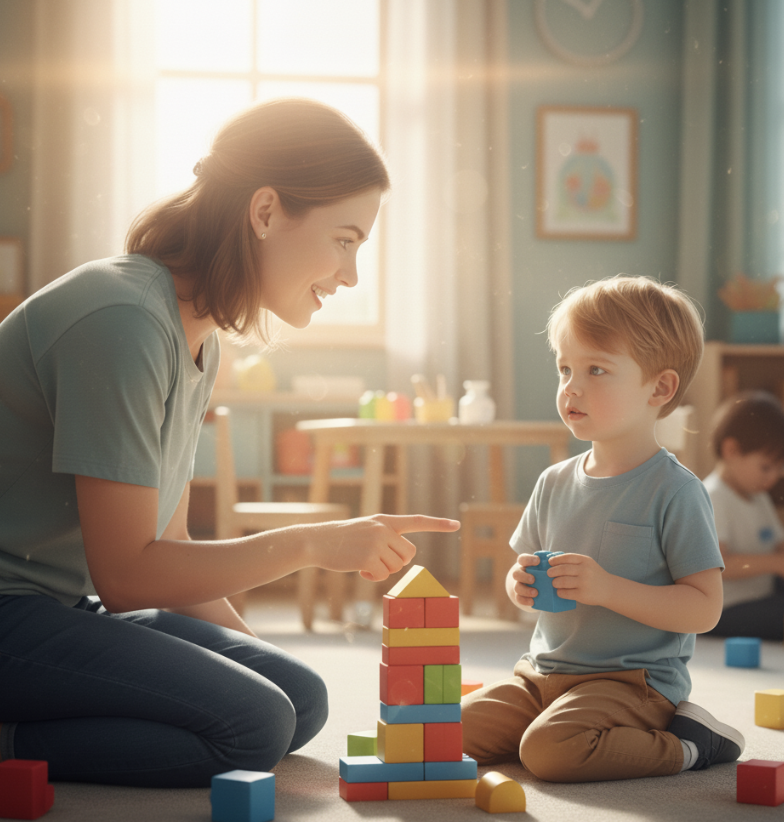
As educators, we’ve all been there - trying one strategy after another, only to feel frustrated when a child’s behaviour doesn’t seem to change. It’s easy to start wondering, “Why isn’t this working?” But here’s an important truth: our role isn’t to fix children. It’s to teach them.
Progress doesn’t always look dramatic. Sometimes it’s subtle - a child pausing before acting, using a new word to ask for help, or simply staying calm for a few more seconds than before. Growth, no matter how small, is still growth.
Let’s look at a simple example. Imagine a child knocking over blocks or grabbing toys during playtime. Instead of saying “No!” or sending them away, we can turn this into a teaching moment.
We might kneel beside them and say, “You really want a turn with the blocks. Let’s try saying, ‘Can I have one?’”
By modeling positive communication, we’re not just stopping unwanted behaviour - we’re helping them build essential social skills they can use again and again.
Every behaviour tells us something. A child might not yet have the words, emotional control, or social understanding to express what they need. When we shift our perspective from “misbehaviour” to “communication,” everything changes.
A tantrum might mean a child is overwhelmed.
Grabbing toys might signal that they’re still learning how to share.
Refusing to join a group might mean they need help with transitions.
Our task is to interpret these signals and guide them toward better ways to express themselves.
Just like learning to read or count, emotional and social learning takes time, repetition, and patience. Quick fixes- like time-outs or reprimands - might stop the behaviour temporarily, but they don’t teach long-term skills.
When we move from trying to control behaviour to trying to teach skills, we empower children. We show them how to solve problems, express needs, and regulate emotions - tools they’ll carry for life.
Children don’t need to be “fixed.” They need to be understood, supported, and taught. Every small effort we make - every calm redirection, every kind explanation - helps build the foundation for their future confidence and resilience.
Growth takes time, but every moment of guidance matters. Because in the end, our greatest impact as educators isn’t in stopping behaviour - it’s in shaping the humans behind it.